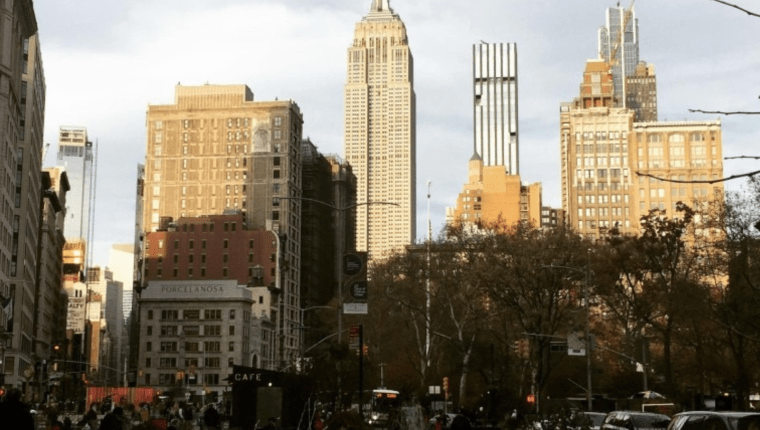September marks the beginning of the opera audition season! Let the singing begin!
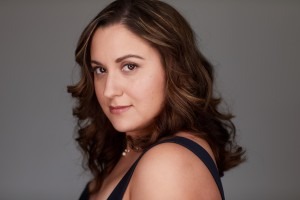
So, I’ve touched upon opera auditions briefly before in past blogs, but I figured I’d break down what I’m planning this fall. Usually, opera companies host season auditions in the fall for the next year(s). They aim to cast roles in the operas planned for the next season-i.e. Seasons 2023-2024, for this year. Opera singers of all backgrounds, voice-types and corners of the country flock to city hubs-mostly New York or Chicago- to audition for various companies. It’s a heavy, busy endeavor for both the singer and the auditioner. A necessity nonetheless.
I tend to schedule all of my auditions in NYC, but let me detail the process and what is needed for a successful audition season. The essentials, if you will.
Audition season requires a lot of diligent planning, because it’s essentially the full financial responsibility of the singer. Unfortunately, we aren’t compensated for auditioning. How it works in opera is different, albeit somewhat controversial. Firstly, an opera singer has to be invited to audition in-person, sort of like being invited for an interview. Through a database dedicated to operatic/performance jobs OR through the company’s website, we submit our headshot, resume, and a few audio/video clips. ALSO-and this is the controversial part- some companies charge a processing and/or pianist fee- i.e. a fee that is split for the administrative assistant rifling through all the submissions AND possible compensation for accompanist at live audition. These are called prelims or preliminary submissions. WE ARE NEVER GUARANTEED AN AUDITION, even after paying the fee. These fees can range anywhere from $15-$35, depending on the company. If we get invited for an audition, it’s great news! Sometimes though, we don’t and we have to eat that money. I’ve been very lucky to get an invitation to audition from most companies I’ve applied to in my time auditioning.
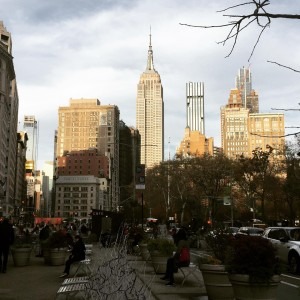
So, NOW that you’ve submitted and received your invite. You start to plan. Some things have changed for the better with COVID, in that there are more virtual auditions and most companies have removed the application fee. So there’s a plus! This year, I’m planning one big trip to NYC and I’m thinking it will be early to mid-November.
I’m booked for auditions, so then I tend to stay with friends in the city OR find an airbnb in the city for a week; usually find a pretty decent rate if I book in advance. This will be a nice year, since I have the PAG grant to support my audition season. This year, I’ll also be traveling with friends up there, so we’ll most likely split a stay!
While I’m up there, along with auditions, I’ll try to schedule an audition with my voice teacher- Metropolitan opera star, Kirsten Chambers. We’ll have a few sessions. It’s a nice little tune up for my voice; I make sure everything is freed up and working healthily. I will probably also schedule a coaching with a musical coach as well, just to make sure my repertoire is accurate and succinct.
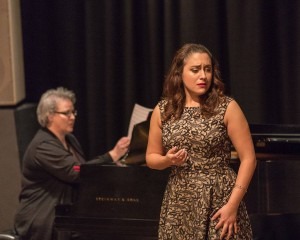
When auditioning in-person, there is a process to follow on audition day. First, I like to arrive at the audition about an hour early, at least. Opera America is an organization located in midtown Manhattan. It’s the National Opera center, where new operas are workshopped, companies can host auditions, recitals are performed and recordings are made. It’s a place dedicated to all things opera and has many resources for opera singers. Usually, a company will rent out one of the large recital halls or one of the smaller performance rooms. I’d also sing for a few representatives from the company. In any case, I find which room the audition is in and then check in with a moderator, if there is one. Once checked in, I go and warm-up (I’ll be writing a whole post about warm-ups!) in one of Opera America’s small rehearsal or warm-up rooms. There’s typically an upright piano in each and these are pretty cheap to rent out!
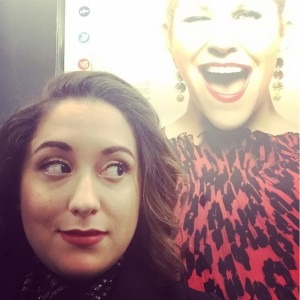
Once warm, I use the bathroom, check my make-up and outfit, hydrate and wait to go in! That’s simple enough. Auditions are immensely nerve-wracking though, for me. I prefer auditioning for film than for opera, if I’m honest. It’s hard to say what you want, sing well, act appropriately and remember coaching notes, while still presenting a full, 5-10 minute polished product. It’s a lot. That’s why, after auditioning, I buy myself a nice lunch/dinner and hop into a Broadway or MET show, or check out a museum. I like to treat myself on occasion. What we do is hard and it rattles your nervous system with adrenaline. Doing something human and fun after, helps to bring me back down to earth.
Well, that’s pretty much what I’m planning for this year. I’ve submitted my resume to a few companies already, so keep your fingers crossed! Now, let’s sing!
